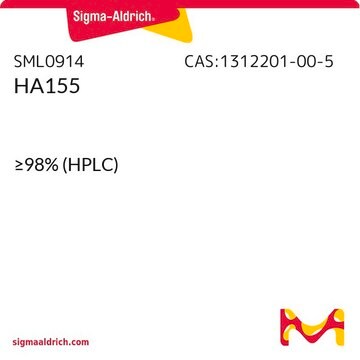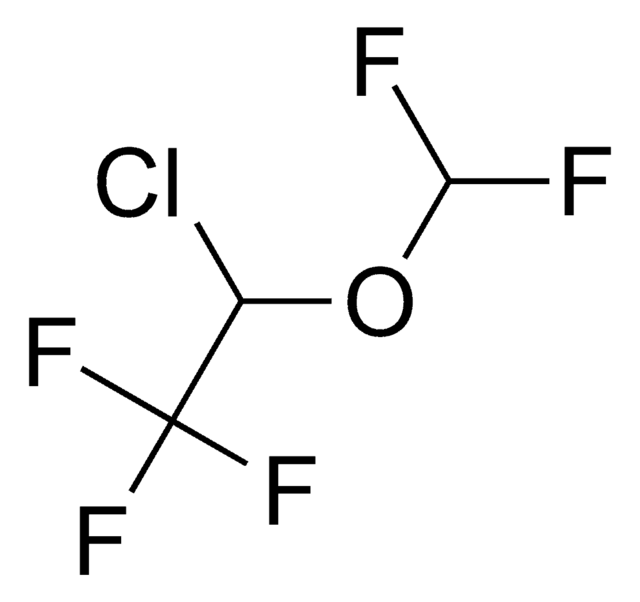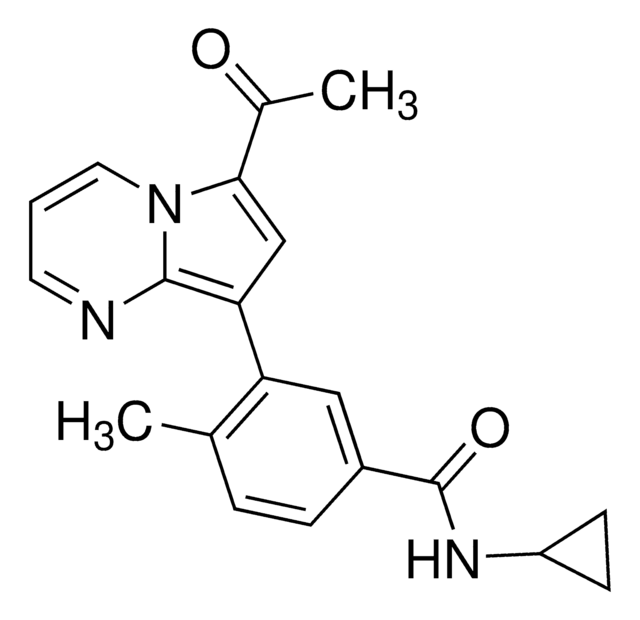SML1655
BI-9564
≥97% (HPLC)
Synonym(s):
4-(4-Dimethylaminomethyl-2,5-dimethoxy-phenyl)-2-methyl-2H-[2,7]naphthyridin-1-one, 4-[4-[(Dimethylamino)methyl]-2,5-dimethoxyphenyl]-2-methyl-2,7-naphthyridin-1-one, GTPL8950
About This Item
Recommended Products
Quality Level
Assay
≥97% (HPLC)
form
powder
color
white to beige
solubility
DMSO: 2 mg/mL, clear (warmed)
storage temp.
2-8°C
SMILES string
CN1C=C(C2=CC(OC)=C(CN(C)C)C=C2OC)C(C=CN=C3)=C3C1=O
InChI
1S/C20H23N3O3/c1-22(2)11-13-8-19(26-5)15(9-18(13)25-4)17-12-23(3)20(24)16-10-21-7-6-14(16)17/h6-10,12H,11H2,1-5H3
InChI key
BJFSUDWKXGMUKA-UHFFFAOYSA-N
Related Categories
Biochem/physiol Actions
To learn about other SGC chemical probes for epigenetic targets, visit sigma.com/sgc
Features and Benefits
Other Notes
Signal Word
Danger
Hazard Statements
Precautionary Statements
Hazard Classifications
Acute Tox. 3 Oral
Storage Class Code
6.1C - Combustible acute toxic Cat.3 / toxic compounds or compounds which causing chronic effects
WGK
WGK 3
Flash Point(F)
Not applicable
Flash Point(C)
Not applicable
Choose from one of the most recent versions:
Certificates of Analysis (COA)
Don't see the Right Version?
If you require a particular version, you can look up a specific certificate by the Lot or Batch number.
Already Own This Product?
Find documentation for the products that you have recently purchased in the Document Library.
Articles
We offer a variety of small molecule research tools, such as transcription factor modulators, inhibitors of chromatin modifying enzymes, and agonists/antagonists for target identification and validation in gene regulation research; a selection of these research tools is shown below.
Our team of scientists has experience in all areas of research including Life Science, Material Science, Chemical Synthesis, Chromatography, Analytical and many others.
Contact Technical Service









